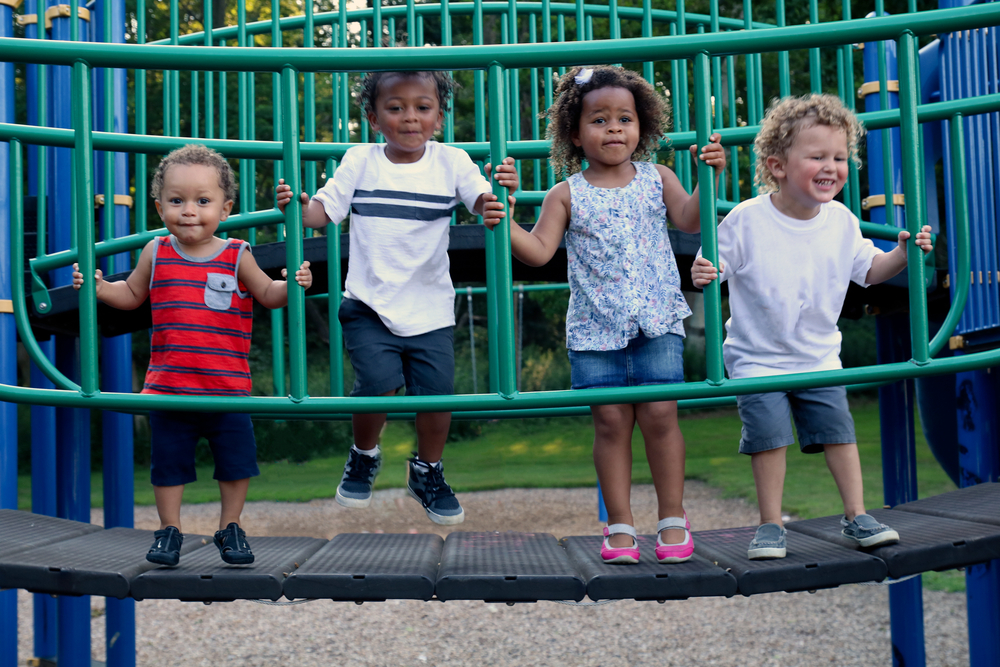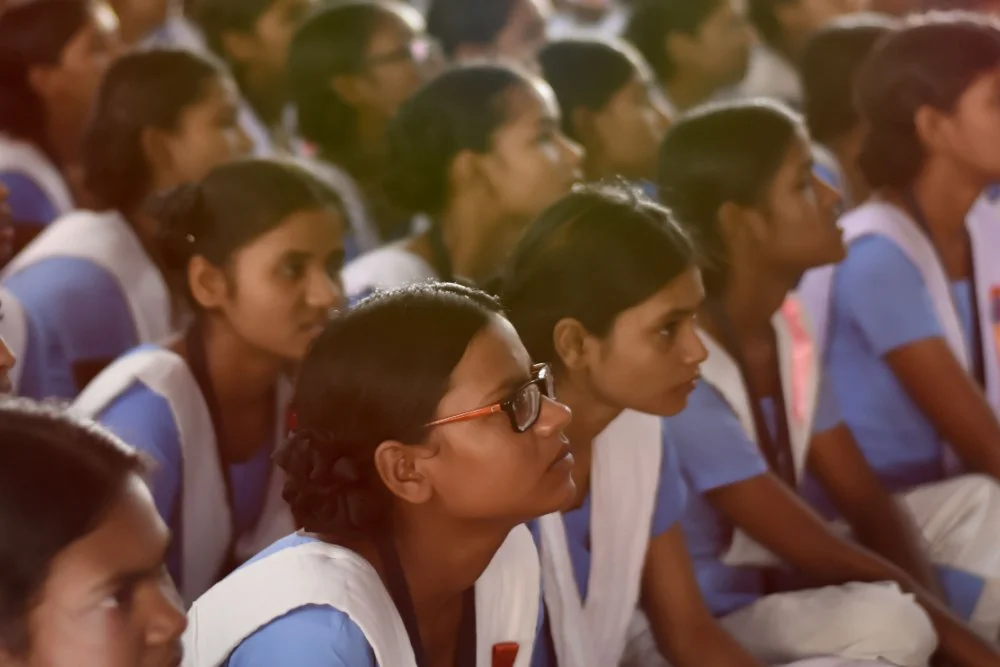Child’s Play: Why Are More Foundations Giving for Playgrounds and Skateparks?
/photo: Olga Enger/shutterstock
Play is critically important to a child’s development. Kids learn how to interact with the world around them through play. It helps them learn the cognitive, physical, social and emotional skills that they need to thrive. Play is considered so essential to child development that the United Nations High Commission for Human Rights see it as a right of every child.
Despite that, not many foundations support initiatives that support play outside of broader education work. However, there’s a small—and growing—number of funders that do. A recent gift that fits the bill came from the Ralph C. Wilson, Jr. Foundation.
The foundation put up $10 million for its Built to Play initiative. The funder is partnering with the Tony Hawk Foundation and KaBoom! to expand access to free, public play spaces for kids in western New York and southeastern Michigan. As part of Built to Play, there will be several grant opportunities to build and design playgrounds and skate parks managed through KaBoom!, a national nonprofit focused on creating safe spaces to play, and the Tony Hawk Foundation, which brings skate parks to low-income neighborhoods.
This is the just latest gift for play to cross our desk, and it's not surprising to see KaBoom! involved. It's a national leader in the growing play space, with a focus on providing play opportunities for kids living in poverty. KaBoom! has pulled in millions in grants in recent years, with some of this money going back out the door in the form of re-grants to help communities build play spaces. Facilitating public-private partnerships is a big part of its strategy. It backers include the Annie E. Casey Foundation, Bezos Family Foundation, and Robert Wood Johnson Foundation, as well as Target, Disney, and other companies.
Support for play from RWJF makes a lot of sense. The funder pioneered an upstream approach to public health philanthropy, in part by reasoning that better healthcare would do little to curb childhood obesity if kids didn’t also have access to healthy food and safe spaces to play and exercise. It's been a leading funder of the play movement, making over $45 million in grants in this area in recent years. Much of this money has gone to Playworks, the other top nonprofit in the play space. RWJF grants have also underwritten some of the new research demonstrating the importance of play for children's health and social development.
One of the biggest recent gifts for play came last year, when the IKEA Foundation pledged $53 million to Let’s Play for Change. The international campaign focuses on children’s right to play and makes donations to poor communities to encourage kids’ development and participation in sports and play. The campaign distributes funds to a handful of organizations, like Save the Children and War Child, which use the money to create safe spaces for kids to play and develop.
On the domestic side, the Caplan Foundation for Early Childhood devotes funding to play, and for good reason. The foundation was created by Theresa and Frank Caplan, the couple behind Creative Playthings, a company that designed toys to enhance imagination and learning in young children. The foundation is relatively young. It started in 2014 and describes itself as an incubator for research and development. It’s grants range from about $25,000 to $100,000.
There have been other gifts to support play. In 2016, the Einhorn Family Charitable Trust, Horace W. Goldsmith Foundation, S.D. Bechtel, Jr. Foundation, and Jenesis Group pooled $26 million to expand Playworks.
It's interesting to see the Wilson Foundation’s $10 million commitment to play. This relatively new foundation has assets of $1.2 billion, which it needs to spend in the next 20 years. It's been making a lot of moves lately, and we've reported on its efforts to revive the flagging economies of western New York and southeastern Michigan. But children and youth is another core focus area, prioritizing early childhood education, after-school programs, and youth sports and recreational programs. That's where this grant fits in.
The foundation’s assets and mandate tie back to its founder Ralph C. Wilson, Jr., former owner of the Buffalo Bills football team, who passed away in 2014. During Wilson’s lifetime, his foundation had about $5 million to work with, but after his death, the foundation received $1 billion when his estate sold the team. Jumping from $5 million to $1.2 billion is a big change, but an even bigger deal may be that all the money will be distributed in the next two decades. The priorities that the foundation is staking out now—and the grantees it chooses—offer important hints about what lies ahead for one of the larger new foundations to emerge recent years.
That Wilson is getting behind KaBoom! is a hopeful sign for more giving to come for groups that recognize the importance of play in children's lives.
Related:
- A New Foundation That Believes in the Power of Play for Kids
- Turnaround Job: A Foundation Backs Inclusive Innovation in a "Transitioning" Region
- Billion Dollar Baby: How Will the New Ralph C. Wilson Foundation Spend Its Big Money?
- Helping Kids Be Kids: A Corporate Funder Supports the Right to Play In a Harsh World







































